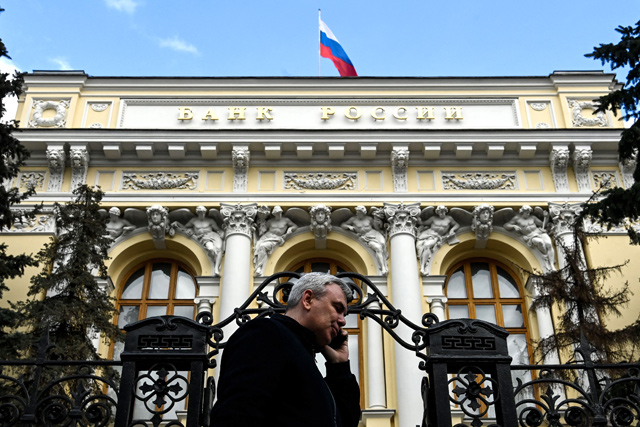MOSCOW — Russia's central bank on Friday raised its key interest rate to 4.5 per cent in a surprise move, as authorities struggle to cap soaring food prices and the threat of new sanctions looms.
In recent months, Russia has faced accelerating inflation and a weak ruble, with authorities coming under pressure as the price of basic goods increased during the coronavirus pandemic.
"The fast recovery of demand and elevated inflationary pressure call for a return to neutral monetary policy," the central bank said in a statement, adding that further hikes could follow.
The increase by 0.25 percentage points — the first since late 2018 — surprised many analysts.
Economist Tatyana Evdokimova said the hike was a response to inflation exceeding forecasts.
"Looks like the regulator was caught by surprise as the hike happened despite no clear signal of upcoming tightening," Evdokimova tweeted.
Consumer prices started to climb in March 2020, driven by a slump in oil prices and a drop in the ruble's value after months of historically low inflation.
Timothy Ash, a strategist at Bluebay Asset Management, said he had expected a hike and pointed to rising geopolitical risks and the threat of new Western sanctions.
"This is nothing to do with inflation but all to do with geopolitics," he said in a note to clients, adding that the central bank was under pressure from the Kremlin.
"There are times it gets the call from the Kremlin and they tell them what to do. The message was 'sanctions are coming, macro financial risks are coming, Fortress Russia settings, hike rates'."
In February, inflation stood at 5.7 per cent in year-on-year terms.
The Bank of Russia expects it to peak in March before declining.
It said inflation would return to its 4 per cent target in the first half of next year.
